Recently, “Translational Medicine Integrating TCM and Western Medicine” at SJTUSM and “Chemical Biology of TCM” at Shanghai University of Traditional Chinese Medicine (SHUTCM) were both selected into the NATCM high-level key disciplines of TCM—cross-disciplinary innovative construction project. SJTUSM and SHUTCM took this opportunity to hold the 3rd Innovation Forum of the Convergence of TCM and Western Medicine and the Seminar of NATCM High-Level Key Discipline of TCM and the Construction of Cross-Disciplinary Innovation in the lecture hall on the first floor of the Translational Medicine Building at Ruijin Hospital on August 31. The forum aims to promote the construction of the system of TCM science and technology innovation and national key disciplines, boost the common development and innovation of TCM and Western medicine, and contribute to the construction of Healthy China. Participants were Wen Daxiang, Director of the Shanghai Municipal Health Commission, and Director of the Shanghai Municipal Administration of TCM; Chen Kaixian, Director of the Academic Committee of SHUTCM and the Innovation Institute of the Convergence of TCM and Western Medicine, and Academician of the Chinese Academy of Sciences; Lin Guoqiang, Dean of the Institute of Innovative TCM of SHUTCM, Academician of the Chinese Academy of Sciences; Fan Xianqun, Dean of SJTUSM and Academician of the Chinese Academy of Engineering; Ning Guang, Dean of Ruijin Hospital Affiliated to SJTUSM and Academician of the Chinese Academy of Engineering; Chen Hongzhuan, Counselor of the Shanghai Municipal People's Government, and Honorary Dean of the Academy of Integrative Medicine at SHUTCM; Shi Jianrong, Deputy Secretary of the CPC SJTUSM Committee; Zhang Xianming, Secretary of the CPC Committee of the Institute of Translational Medicine of SJTU, project leaders of key disciplines, and leaders of relevant departments of SJTUSM.
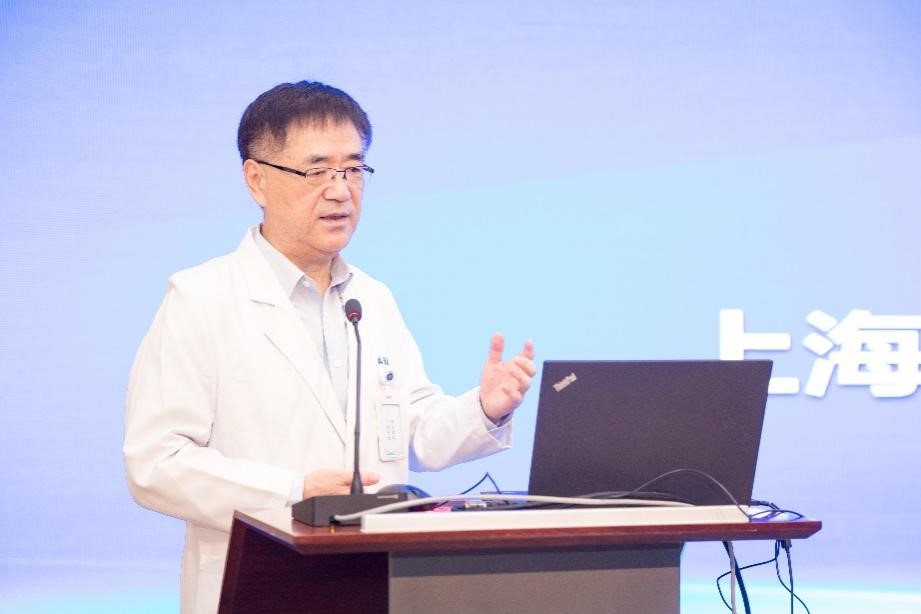
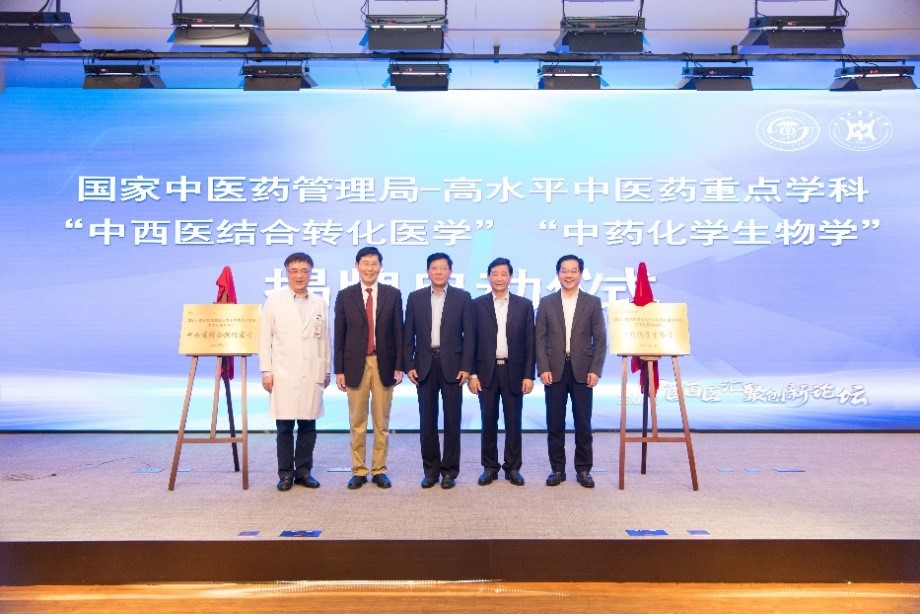
The opening ceremony of the seminar was hosted by Bi Yufang, Vice President of Ruijin Hospital affiliated with SJTUSM. Academician Ning Guang, President of Ruijin Hospital, delivered a speech to welcome experts and colleagues. He declared that Ruijin Hospital encompasses Wei's Department of Traumatology, Zhu’s Department of Laryngology, and long-standing disciplines of TCM and integrative medicine initiated by Professor Kwong Ankun and Professor Wang Zhenyi. Through years of construction, the clinical service level and regional demonstration role of integrative medicine is outstanding in performance. Ruijin Hospital has become a flagship construction unit for integrative medicine in China and continues to explore paths for the construction of integrative medicine as a general hospital with Ruijin characteristics. Director Wen Daxiang, Academician Chen Kaixian, Academician Lin Guoqiang, Academician Fan Xianqun, and Academician Ning Guang jointly unveiled the construction of the key disciplines of “Translational Medicine Integrating TCM and Western Medicine” and “Chemical Biology of TCM”.
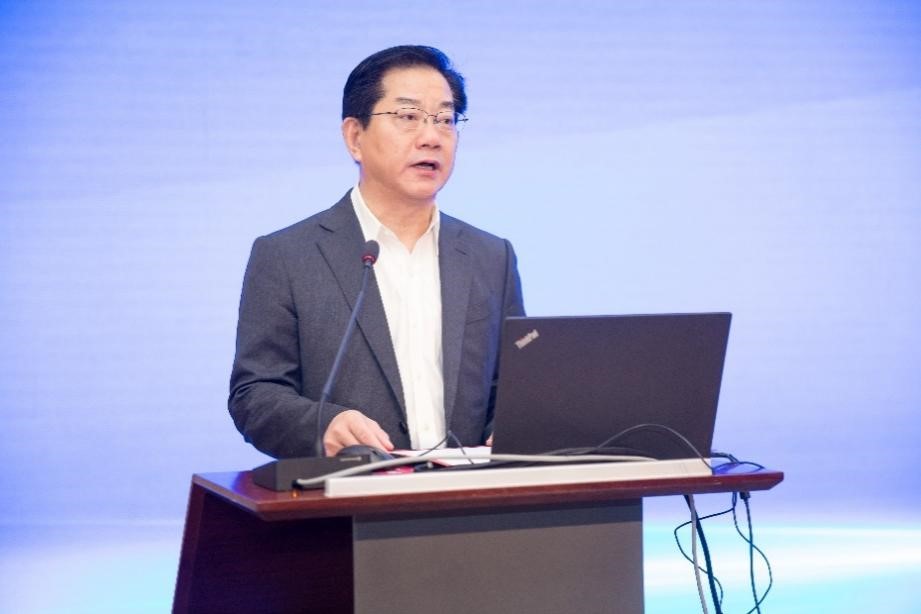
Fan Xianqun, Chancellor of SJTUSM pointed out that as early as 1981, SJTUSM was one of the first institutions to establish a clinical doctoral degree-granting site for integrative medicine. For decades, SJTUSM and its affiliated hospitals have closely centered on national strategic needs to promote the inheritance, innovation, and development of TCM. In July 2020, SJTUSM and SHUTCM jointly established the Innovation Institute of the Convergence of TCM and Western Medicine. Joining hands, the two schools tackled difficulties faced by key scientific research, opened courses, encouraged the mutual engagement of tutors, trained graduate students, and held the Innovation Forum of the Convergence of Traditional Chinese Medicine (TCM)and Western Medicine. These efforts drove the collaborative innovation of TCM and Western medicine. Furthermore, technological achievements and solutions with independent innovation, clinical application value, and clinical transformation prospects have been achieved. Thus, the transformation of results has been boosted. The construction of the key discipline of “Translational Medicine Integrating TCM and Western Medicine” of SJUTSM is both a new starting point and a new challenge. Joint efforts and shared wisdom are crucial to exploring the development path of integrating TCM and Western medicine and achieving its prosperity and development. Fan thanked all the experts and colleagues for their support to the discipline of integrative medicine at SJTUSM and wished the seminar a success.
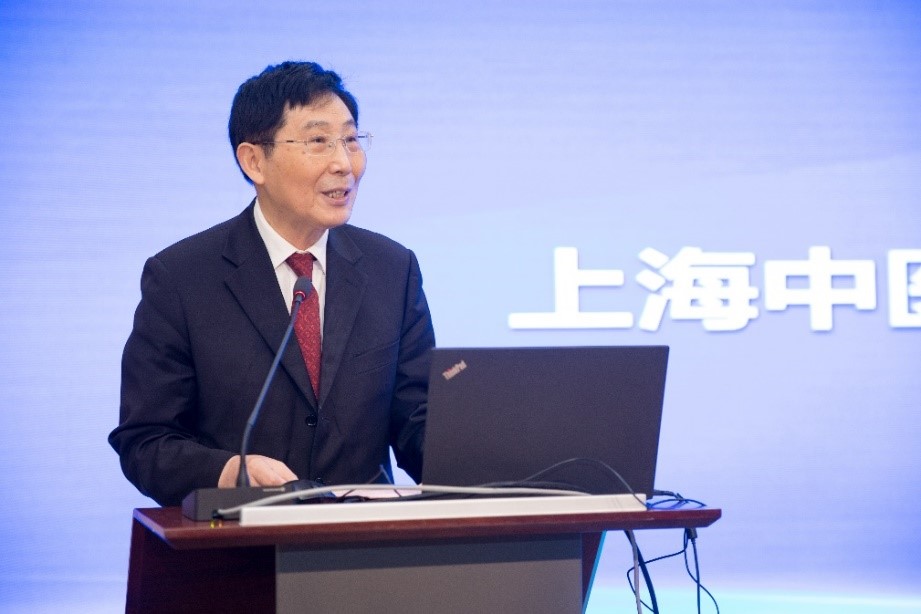
Academician Chen Kaixian pointed out in his speech that the unveiling ceremony of the construction of the key discipline of “Translational Medicine Integrating TCM and Western Medicine” and “Chemical Biology of TCM” is a milestone for the undertaking of integrative medicine, SJTUSM, and SHUTCM. He believes that communication can promote the inheritance and innovation of the two disciplines. It also marks that the strategic cooperation between SJTUSM and SHUTCM has embarked on a new journey and opened a new chapter, providing opportunities for the development of TCM. It has also created a great platform to effectively combine tradition medicine, modern medicine, and chemical biology. This platform will continue to facilitate the innovative development of integrative medicine and contribute to Healthy China.
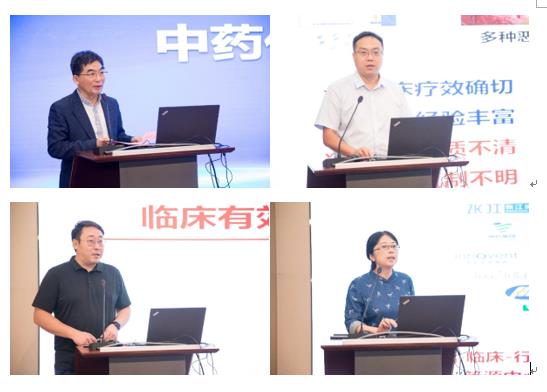
The special report on “Chemical Biology of TCM” was hosted by Professor Chen Hongzhuan. Ge Guangbo, the project leader of key disciplines, Executive Vice President of the Institute of Interdisciplinary Integrative Medicine Research of SHUTCM; Luan Xin, director of the TCM Systems Pharmacology Research Center of the Institute of Interdisciplinary Integrative Medicine Research of SHUTCM, and Wang Hao, Associate Dean of the College of Basic Medical Sciences of SJTUSM delivered academic reports respectively. The titles of their reports were “Discovery of Serine Hydrolase Inhibitors Derived from TCM”, “Discovery and Mechanism of Active Ingredient Targets Derived from Clinical TCM”, and “Build a First-Class Biomedical Clinical Research and Collaborative Transformation and Innovation Center based on Convergence, Adaption, Innovation, and Mutual Benefit”. They presented the discovery process and mechanism research paths of active ingredients in TCM. In addition, they also shared updates on building a first-class biomedical clinical research and collaborative transformation and innovation center.
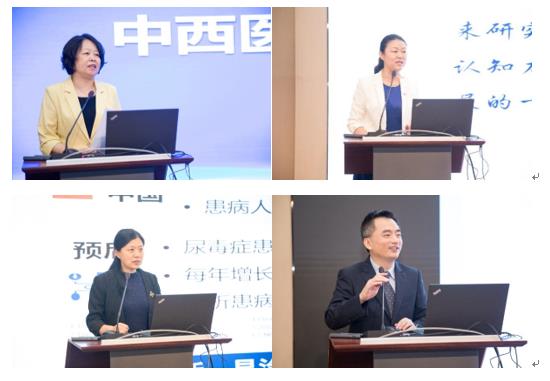
The special report “Translational Medicine Integrating TCM and Western Medicine” was hosted by Professor Shi Jianrong from SJTUSM. Bi Yufang, the project leader of key disciplines and Vice President of Ruijin Hospital; Mou Shan, Deputy Secretary of Renji Hospital, and Zheng Yuanyi, Vice President of Shanghai Sixth People's Hospital delivered their speeches “Research on New Solutions to the Prevention and Treatment of Metabolic Diseases by Integrating TCM and Western Medicine”, “Research on the Interdisciplinary Prevention and Treatment System of Acute and Chronic Kidney Injury”, and “Research and Transformation of Technology Innovation in Integrative Medicine Diagnosis and Treatment”. From the perspective of clinical diseases, they also introduced the concept and application of integrative medicine in clinical diagnosis and treatment.
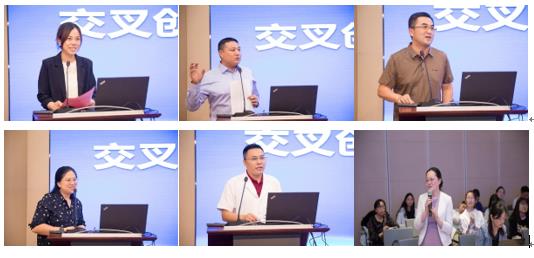
The discussion session on cross-disciplinary innovation construction was hosted by Fu Yao, the project leader of key disciplines and Director of the Department of Ophthalmology of Ninth People's Hospital, and Xu Jianrong, Director of the Neuroscience Research Center of SHUTCM. Speakers pointed out that the integration and complementary advantages of TCM and Western medicine can inspire research on modern life science, guide key technological innovations, and break technical bottlenecks. The progress will demonstrate how Chinese wisdom can solve medical problems in the present age. To achieve this goal, supervisors at all levels of the school will fully cooperate with the development of the two key disciplines, serve cross-disciplinary research needs, and improve the efficiency of scientific and technological transformation.
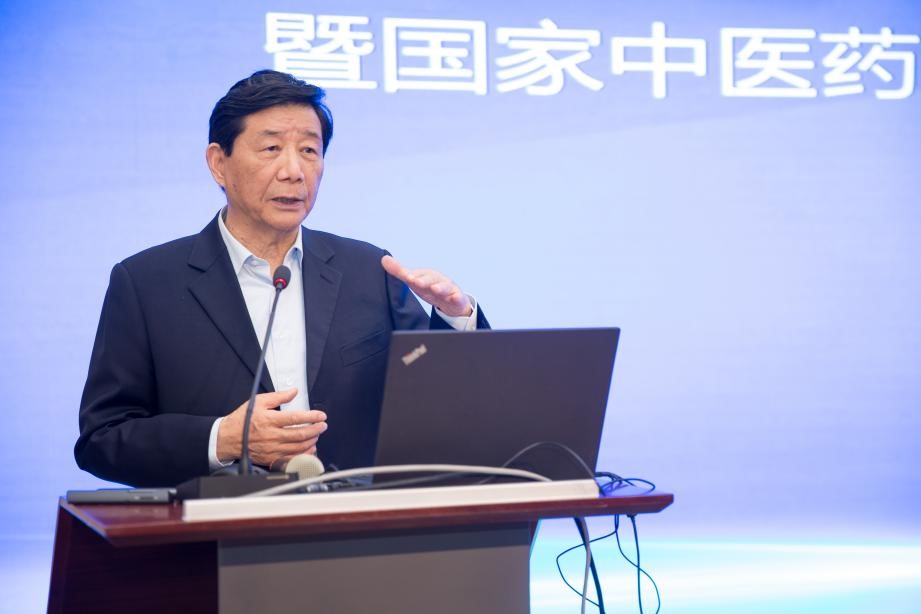
Academician Lin Guoqiang made a concluding speech, in which he pointed out that chemistry can be an integrated part of cross-disciplinary construction. He also stressed that chemical structural modification plays a key role in improving drug effects and accelerating transformation. To better serve clinical work, TCM and Western medicine should integrate closely and learn from each other in the development of the discipline of integrative medicine. It is not limited to cooperation between two disciplines because multi-disciplinary and interdisciplinary exchanges are also required. He expressed his expectations for young scholars, hoping that the new generation can learn more about the history of the discipline of integrative medicine, promote the development of the discipline, contribute wholeheartedly to the discipline, and bring good news to clinical patients.
The young students put forward their thoughts, and the scholars interacted actively. The seminar ended successfully with a lively discussion.

